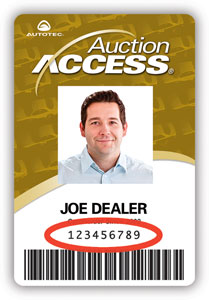A real estate auction provides the opportunity to purchase a property (commercial or residential, improved or unimproved) for a great value and in an expedited manner. You do your own homework, review the legal documentation (where applicable), and set your own price you are willing to pay. If you are the highest bidder, you know the results immediately. A few auction tips:
- Arrive at the auction early to give yourself time to inspect the property (if allowed), register and ask questions. You will need to arrive earlier than the time of the sale so that you can register for the sale as a bidder and, if it was requested in the auction announcement, get your deposit check registered with the auctioneer.
- Do your homework. Find out how much similar properties in the area have sold for.
- Be Prepared to bid. Make sure you review the Terms of Sale prior to arriving at the auction. Specific deposits and acceptable form of payment are available within the legal documentation or TERMS under non-legal documentation provided online under the specific sale. Bidding is simple. But if you’re doing it for the first time, it can be intimidating. Here are some general guidelines provided by the National Auctioneers Association:
- Make sure you clearly understand the terms and conditions of the auction before making a bid, these are available within the legal documentation available online and will also be announced by the auctioneer at the beginning of the sale.
- Listen closely to the auctioneer. The auctioneer will determine the increment pricing stages of bidding. If you are having trouble understanding the auction chant, listen for a few minutes and get a feel for it before you jump in and begin bidding and raise your bidder’s badge or other identification number you were given when you registered.
- Be sure you make eye contact with the auctioneer when you bid and raise your bidder’s badge or other identification number you were given when you registered.
- The process is fast, so if you wish to bid, quickly raise your hand or shout out loud.
- When the auctioneer calls the sale, the sale is final.
Your responsibilities as a purchaser are advertised prior to the scheduled auction date and will be read by the Auctioneer at the time of the auction. Additional terms may be announced at the auction or may be posted at the sale site. Failure to comply with any of the terms of sale could cause you to forfeit your deposit and in addition to losing your deposit, you could also be responsible for the expenses to resell the property, as well as any deficiency incurred.
Information will be provided for each sale auction properties may range from excellent condition to poor condition. If you purchase it, you are responsible for it; auction sales are not contingent on inspections or your satisfaction with the property’s condition.
The property will be sold “AS IS, WHERE IS.” What this means is that unless otherwise announced, the sellers and/or auctioneer make no representations or warranties about the condition or other descriptions of the property. The sellers/auctioneer will not make any repairs.
In some cases, the property will be open for inspection on the day of the auction. When inspections are possible, they will typically occur one hour before the scheduled auction time. Properties are sometimes available to view by appointment with the auctioneer. In the case of a foreclosure, the auctioneer does not have access to the property before the auction, but the property may, in certain instances, be opened when we conduct the auction. See the auction advertisement or call the auctioneers for specific inspection times.
When a buyer’s premium is a part of the sale, it will be posted in the advertising and will also be announced by the auctioneer prior to the sale.
A buyer’s premium on the real estate is typically in the range of 1 to 10 percent. For example, if a piece of real estate sells for $100,000 and carries a 5 percent buyer’s premium, the buyer will pay $105,000.
As a bidder, your certified or cashier’s check which must be brought to the sale may be made payable to yourself, unless otherwise instructed. If you are the winning bidder, you will endorse the check to the auctioneers. Otherwise, you are free to take the check back at the conclusion of the auction and re-deposit in your account.
As the purchaser, your deposit will be credited toward the purchase price. If the “TERMS OF SALE” require you to increase your initial deposit (the initial deposit is the amount required to be paid to the auctioneer at the time of sale), there will be specific instructions in the Terms of Sale and will be confirmed by the auctioneer at the time of sale.
| Example | Amount |
|---|---|
| Purchase Price | $60,000 |
| 10% deposit (as specified in Terms Of Sale) | $6,000 |
| Advertised Deposit brought to auction sale | $5,000 |
| Remaining deposit due (within 24 hours) | $1,000 |
In addition to your purchase price, you may be responsible for certain past due expenses associated with owning the property, and you may also be responsible for such expenses as of the date of sale, or as of the date of settlement, including taxes, utility costs and insurance. You may also be required to pay interest on the amount of the purchase price, less the amount of your deposit, from the date of the sale to the date you settle for the property. The Terms of Sale will outline your specific responsibility. We recommend that you obtain a fire and/or liability insurance binder on the property immediately as of the date of sale. After all, if the property is damaged or destroyed, your interest as the contract purchaser could be affected. As the purchaser, you will pay all of the settlement expenses, including title fees and recording costs, the costs of your closing attorney or the company, etc.
The settlement or closing period is specified within the terms of sale. If the terms of settlement are based on ratification by a Court, the ratification period is typically thirty to sixty days, but might take longer. In these cases, settlement will typically take place within 10 to 20 days of the court ratification. In all cases, you will be expected to settle on the property within the specified time. You may select your own title company or attorney to handle the closing.
It is the purchaser’s responsibility to obtain financing. If you plan to use a mortgage to purchase the property, we recommend that you apply for the loan immediately. If your bank must take longer than the specified time to complete the loan, you risk being in default of your contract of sale. If you do not obtain the financing within the specified time for settlement, you will be in default of your contract of sale. Of course, you can also pay cash.
On the day of the auction, the auctioneer generally will arrive at the property one-half before the auction time. We recommend that you arrive at the auction early, in order to have enough time to register with the auctioneer and to tour the site when that is an available option. In order to become eligible to bid, you will need to register with the auctioneer and show the auctioneer that you have the required deposit in hand. Only then will you become a qualified bidder.
Before the bidding starts, the auctioneer will make important announcements regarding the property and your obligations as a purchaser. If a foreclosure, the auctioneer will read the entire legal ad prior to the sale of the property. Please feel free to ask any questions regarding these announcements and the terms of sale.
At the conclusion of the announcement and question period, the auctioneer will solicit bids for the property. Bids are generally made either orally or by raising a hand. Bidding increments are made in amounts acceptable to the auctioneer, who may set a minimum bidding increment as the sale progresses. Any bid that is merely a nominal or fractional advance may be rejected by the auctioneer if in his judgement it may affect the sale injuriously. If a dispute arises between two or more bidders, the auctioneer shall decide in favor of one of the bidders, or immediately re-offer the property. In most cases, when two or more bidders have been actively bidding and the sale stalls, the auctioneer will announce a slight break for everyone to breathe and think over their position prior to the auctioneer opening up the bidding process one last time for any advances in the price. The auction is concluded when the auctioneer calls SOLD. An auctioneer may announce that the requirement of the consignor have not been met and even though all bidding has been concluded, the auctioneer might announce that the “reserve” has not been met.
Auctions may be held on the premises or at the courthouse for the county the property is located in. This is clearly discussed in the legal documentation and on the auctioneer’s website. If there is any question, you should contact the auctioneer.
- Trustee’s, Substitute Trustees’ or Foreclosure Auctions: A mortgage foreclosure sale initiated by the lender when a borrower defaults on their mortgage. Such sales are overseen and must be ratified by the court of the county in which the property lies. Once the auction is completed and the sale is ratified, equitable title is transferred to the purchaser and legal title will pass at settlement. The property is sold free and clear of all liens unless otherwise advertised. It is the purchaser’s responsibility to obtain possession of the property, even if the previous occupants do not leave on their own.
- Bankruptcy Auctions: A liquidation of assets (real estate and/or personal property such as tools, equipment, furniture, vehicles—see also Personal Property Sales section) whereby a court appointed Bankruptcy Trustee sells the assets of the debtor/bankruptcy estate. Bankruptcy auctions are similar to foreclosure sales in that a distressed situation exists. Free and clear title is also guaranteed, but no ratification is required by the bankruptcy court. Settlement times, deposits, and terms of sale are advertised prior to the auction, as in the case of a foreclosure.
- Bank Ordered Sales (REO Sales): Typically means the property is owned by the bank which acquired the property through a foreclosure.
- Lender Sales: Same as Bank Ordered Sale, but the Lender may be a finance company, an investor, or private note holder, etc.
- Sheriff’s Sales: Court ordered auction to satisfy a creditor’s judgment against the owner and overseen by the Sheriff’s office.
- Tax Lien Sales: City or County offers at auction properties that have delinquent property taxes.
- Secured Creditor Sales: Upon default of a secured loan, the secured creditor is entitled to seize, and then sell, the collateral to discharge the debt that the security interest secures.
A Personal Property, Asset, or Liquidation Auction is where non-real estate property is sold at a specific time and place to the highest bidder. These types of auctions can be court ordered, bank ordered, or simply that a company may wish to liquidate their assets.
These types of auctions require a person to get a bidder number when registering to bid. Normally a driver’s license, phone number, is requested to obtain a bidder number. When an item you want goes up for bid it will usually start low and the auctioneer will raise the bid amount every time someone bids until there are no more bids on that item at which time they will sell the item for the highest bid.



